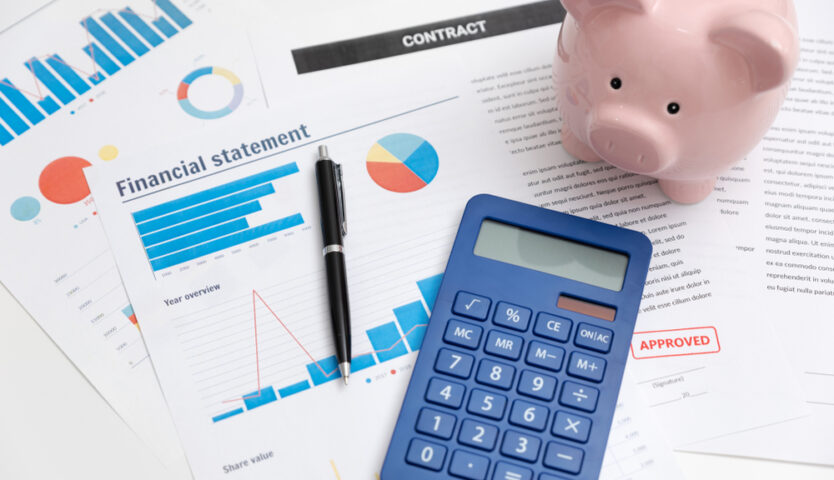Tax audits can be a stressful ordeal.
The CRA conducts audits based on risk assessments and considers self-employed individuals to be risky when it comes to filing taxes.
Rest assured that many self-employed individuals who experience audits have done nothing wrong – they simply caught the attention of the CRA, who wants to ensure that tax legislation and compliance are maintained.
However, there are ways that your small business can properly file its taxes and avoid a CRA audit!
Reasons Self-Employed Individuals Get Audited
As someone who is self-employed, there are things that can trigger an audit with the CRA.
Before we look at how to avoid an audit, let’s look at these common audit triggers:
You’re Self-Employed
Sometimes being self-employed is enough to trigger an audit!
When you don’t receive a T4 slip from an employer, the CRA cannot check your income against an official document to look for mistakes and accuracy.
Because you are reporting your income, the CRA may assume that the records are not accurate and will audit your income to check for errors.
Your Tax Return Has Changed Significantly
If you claim way more or way less than you did in previous years, the CRA may flag your account and conduct an audit.
There are many reasons a self-employed income can vary (COVID, supply chain issues, more time to dedicate to your business, etc.), but if you know you are filing a significantly different amount, then be prepared for an audit.
Your Claims Seem Excessive
Being self-employed means you can claim various expenses on your tax return, such as your home office or vehicle.
However, if the CRA thinks you are claiming more than you are eligible for, they will conduct an audit to review your expenditures.
For example, it’s unlikely that you would use your vehicle solely for business, so claiming the entire cost of your car is going to raise eyebrows at the CRA.
You Continually Claim Business Losses
If you are continually claiming business losses each year and reducing income from other sources, the CRA will conduct an audit to verify whether or not your business is actually a commercial enterprise.
How to Keep Proper Tax Records
The first step in avoiding a CRA audit when self-employed is to keep proper tax records!
This includes organizing your records, invoices, receipts, and other financial documents for at least six years.
You can use record-keeping software such as QuickBooks to help manage your tax records, but here are some other self-employed tax tips for organizing your documents:
- Keep your business and personal accounts separate to keep things simple and efficient.
- Use spreadsheets to log claims such as mileage on your vehicle and purchases for your business.
- Use a file folder to organize your receipts. If the receipt doesn’t fully describe your purchases, make a note.
- Make backups of any digital information. If using paper copies, make digital backups.
- Dedicate time each week to work on your bookkeeping. Don’t leave your tax preparation to the last minute!
By improving your financial record-keeping, you can avoid a CRA audit, and if you do get audited, you will have all the necessary information organized and ready to go!
Incorporated Business vs. Non-Incorporated
Even as a self-employed individual, you can incorporate your business in order to separate your business from your personal finances.
Otherwise, when you run a non-incorporated business, you are personally responsible for the results of the business – good and bad.
However, when you incorporate your business, you are responsible for preparing quarterly and annual reports for the CRA.
This can involve extensive paperwork, so keeping good records as an incorporated business is essential.
Non-incorporated businesses don’t require such a heavy load when it comes to preparing taxes, and your business and personal taxes can be filed in one individual tax return.
Get to Know your Tax Deductions
Earlier, we mentioned how excessive deductions can trigger an audit. To avoid a CRA audit when self-employed, let’s look at the type of tax deductions you are eligible for:
Business Operating Expenses
- Start-up costs
- Delivery and shipping costs
- Accounting fees
- Advertising costs
- Tax preparation services
Home Office Expenses
- Home office cost (the percentage of your home your office space occupies compared to your rent/mortgage, utility costs, etc.)
- Telephone and internet (the percentage of hours used for business versus personal)
- Cleaning supplies
- Office supplies
Vehicle Expenses
- Gas
- Insurance
- Repair Costs
- Parking Fees
(Keep in mind that if you use your vehicle for both business and personal use, you will have to calculate the deduction costs based on how often you use your car for business and how many kilometers you use for business.)
Other Deductions
Don’t miss out on these additional tax deductions for self-employed individuals!
- Bank fees on your business bank account
- Private health plans
Keep a Backup Fund (Just in Case)
As a self-employed worker, you do not get to enjoy having a regular income like waged and salaried workers.
For this reason, it’s important to keep a backup fund just in case!
Start by establishing an emergency fund by looking at your budget and seeing how much you can afford to put aside.
Not only will an emergency fund help you in a pinch, but it may come in handy for paying your taxes.
You should keep any balances on your credit cards below their limits and consider applying for a personal line of credit. These can be great buffers should you run into any financial hardships.
When it comes to being self-employed, financial hardships can occur for many reasons, such as:
- Irregular income
- Tech breakdowns
- Late payments from clients
- Burnout (you don’t get paid vacation, sick leave, or mental health days when you’re self-employed!)
Ultimately, having a backup means you can address any sudden financial issues in your business and avoid a CRA audit.
Accounting Services in Edmonton For Self-Employed Individuals
Avoiding a CRA audit when self-employed is considerably easier when you have a professional and knowledgeable accountant by your side!
Get in touch with Liu & Associates today to learn more about how our team can support your small business and help you organize your taxes to avoid a stressful audit.



















